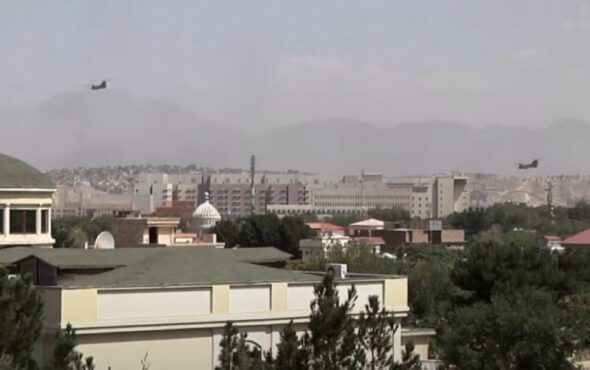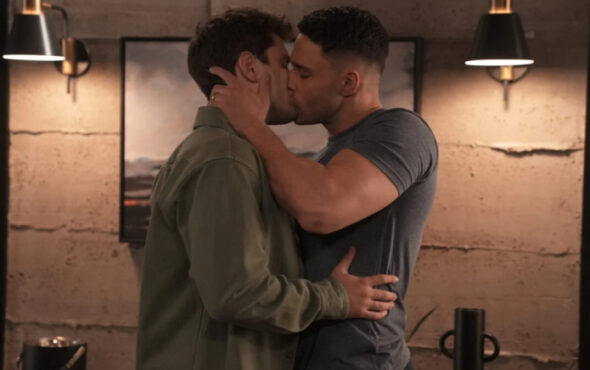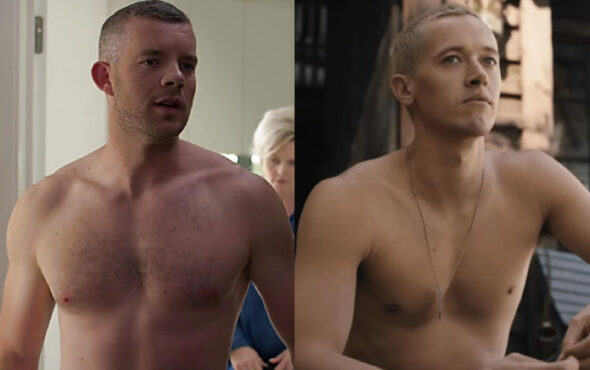
In September 2021, Openly published the diary of a gay man based in Kabul, one month after the Taliban took full control of Afghanistan.
The impact of the diary, written over one week, was enormous, with British lawmaker John Nicolson reading from it during a parliamentary debate on LGBTQ+ Afghan refugees.
But what happened to the diarist, a former English teacher who had lost his job and was then hiding from possible death at the hands of the new Islamist regime?
A year on from the fall of Kabul on Aug. 15, Openly recontacted the man, whose name we are not publishing to protect his identity, to find out what happened next.
In a three-part diary, he told us his thoughts and feelings – and experience of fleeing Afghanistan for neighbouring Pakistan as he tries to make it to the West.
Part II – a gay man flees Afghanistan
I was at my relative’s house in Kabul when the phone rang. Less than two weeks had passed since the Taliban took power.
It was one of the international LGBTQ+ organisations I’d been contacting for help.
They told me I should be at a particular place in Kabul that night to catch a bus to the airport. They were very clear that it was all down to us.
And that if anything happened – which in itself was terrifying – it would not be their responsibility.
There was a possibility we would be caught by the Taliban – like sheep torn apart by wolves.
I knew this was extremely scary, but I also knew I had no choice. I said to myself, “Let’s just take this risk; it might be worth it.”
I didn’t sleep for two nights.
When I arrived and found the bus, I was terrified. When I stepped on board, I saw other members of the LGBTQ+ community – my community. I saw scared faces looking back at me.
Words cannot describe how anxious they looked.
I had sold everything I had before boarding the bus: my expensive personal laptop for just $100. But at that point, I didn’t care about anything like that.
The weather was hot: 38 degrees Celsius (100.4°F). The noise from the city had died down. All I could feel in that moment was terror, worry and fear. As the bus door shut behind me, I wondered what exactly I had done.
I wouldn’t ever consider myself to be a brave person. I come from a very poor family and we had no choice but to work when we were young.
I knew that education is the only way to prosperity, and I really worked hard to try and succeed.
And then the Taliban came, and it became simply a matter of just surviving.
Before I boarded the bus that night, I went through so much stress. I wanted to be alive; I wanted to live more. But it was so hard, so hard. I told myself that I had to endure these hardships to survive.
We crept through the night on the bus, passing checkpoint after checkpoint.
I remember seeing smoke rising over the city as dawn broke. There had been some sort of explosion and whilst the windows of the bus remained closed, we had to cover our mouths and noses to block out the smell.
But all of us, together on the bus to Kabul airport, presumed that if we took this appalling risk, that we would be okay, that we would get out. But that didn’t happen.
After waiting seven hours, we were told that there was a high likelihood of (suicide bomb) threats against people waiting outside the airport. So we left.
When I came back home, I felt so humiliated and devastated. I had lost all my hopes, all my dreams and all the future plans I worked so hard for.
It felt like we were all attending our own funerals. I had never felt I more ruined.
I returned to my own home. I looked at the guitar that I’d played when I was younger hanging on the wall and I thought about suicide. I really did.
I thought it would be better to take my own life than be killed in front of a group of people by the Taliban – simply because of my sexual orientation.
No, I thought, there must be some other reason to keep living. But at that point, everything was gone. I waited at my relative’s house and wrote my diary.
I was so happy when my diary was read out in the British parliament. I couldn’t sleep that night. I assumed some organisation would get in touch with me. I checked my emails several times a day – but nothing.
Publishing my diary did not get me out. But it did get me help. Some people in the UK read my diary and got in touch, and have become my friends. Two people sent me money to buy food and to escape from Afghanistan.
To get out of Afghanistan, I needed a passport. In November, I found a guy who said he would help me get a passport. I paid him $150 in advance, but he took the money and disappeared.
After nine months of hiding (at my relative’s house) in a dark room – where I got very sick so many times – I thought this was it.
But then another man whom I had approached for help called me – it was like a miracle. He told me I should go through the process myself and visit the passport office, pay the government and collect my passport.
I then spent almost three months waiting for a Pakistani visa. When everything was ready, I was so happy, I cannot tell you.
I was getting out of Afghanistan and heading to freedom.
This is his story as told to Openly Editor, Hugo Greenhalgh. The diary entries have been edited and condensed for clarity.
This is Part II in a three part series. For more in this series:
Escape from Kabul: Part I – Life of a gay man in Afghanistan
Editing by Katy Migiro and Hugo Greenhalgh.
GAY TIMES and Openly/Thomson Reuters Foundation are working together to deliver leading LGBTQ+ news to a global audience.



